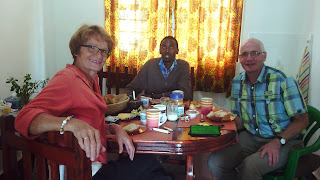Find the Swahili Public Area Signs you need amongst our wide range of selected Information Signs.
KILELE SWAHILI LANGUAGE Treat
KARIBU KSLT, BOOKINGS; kslt.tanzania@gmail.com +255758100222 for the most of swahili language and culture.
WELCOME TO KSLT
Swahili as a Second Language @ (KSLT)
Day, Evening and Saturday Programs
If learning Swahili in Dodoma. is your goal, you have come to the right place! We offer a wide variety of Swahili programs ranging from our intensive day program with 25 hours per week and 12 different levels to customized private lessons with your own private Swahili tutor. KSLT has become known for its excellent teaching and friendly atmosphere and is committed to providing quality language instruction as well as the help, services, and support our students need to study the language.
IN WORDS OF OUR CLIENTS
Thursday, April 13, 2017
I LOVE YOU IN SWAHILI
 In this lesson you will learn how to say “I love you” in Swahili. The
verb for to love is “-penda”.
In this lesson you will learn how to say “I love you” in Swahili. The
verb for to love is “-penda”.However, it also means "like" so, depending on the context it can mean any of the two; love/like.
there fore; ninapenda simply mean I like or I love.
red=personal pronoun
green= time marker
purple= object infix
Since it’s a reflexive verb you have to put object infix as well to indicate to whom the verb is directed; To say “I love you”, say: “ninakupenda".............. to say "i love them", say ninawapenda
see personal pronouns(subject prefix) , tense markers and object infix in the tables below;
SWAHILI COLOR
We live in a world of colors and in learning Swahili it will be very beneficial to learn these words. Whether you are describing things that you like or the colors in nature you will find these words to be very useful. In Swahili “color words” are adjectives and must be prefixed with special prefixes agreeing to noun classes with the noun that they’re describing.
To get a good grasp of how these words work, kindly visit my color lesson page; here
I can use a little encouragement for this job, don't forget to like or comment. Feel free to contact if you have any question; KARIBU.
Monday, January 23, 2017
Wednesday, February 17, 2016
THANKS TO DR. HANS & MARIA SCHWAKE, IT WAS GREAT WORKING WITH YOU
Tuesday, December 15, 2015
ANOTHER REASON TO WHY KSLT?
Selective Coursework. Students can tailor their studies
to align with their particular interests and career goals, particularly
in the fields of business, health care, and pastoral ministry.This
flexible and individualized opportunity empowers students to choose the
concentration that suits them best.
Subscribe to:
Posts (Atom)
ABOUT SWAHILI
Swahili is traditionally regarded as being the language of coastal areas of Tanzania and Kenya, formalised after independence by presidents of the African Great Lakes region. It was first spoken by natives of the coastal mainland and spread as a fisherman's language to the various islands surrounding the Swahili Coast. Traders from these islands had extensive contact with the coastal peoples from at least the 2nd century A.D. and Swahili began to spread along the Swahili Coast from at least the 6th century. There is also cultural evidence of early Zaramo people settlement on Zanzibar from Dar-es-salaam in present-day Tanzania. The African population of the island holds the tradition that it is descended from these early settlers
NOW it is the most widely spoken African language in the world, with over 50 million speakers. It is used as a lingua franca or trade language by many people in Uganda, Rwanda, Burundi, southern Somalia and northern coastal Mozambique. A version of Kiswahili is spoken as a first language by several million people in the eastern part of D.R. Congo. Most people in Kenya today speak at least some Kiswahili, and throughout Tanzania it is fast replacing local tongues as the first language of the new generation of children. If you plan to live, work, or travel in any of these areas, some knowledge of Kiswahili will help you communicate the way you want to.
NOW it is the most widely spoken African language in the world, with over 50 million speakers. It is used as a lingua franca or trade language by many people in Uganda, Rwanda, Burundi, southern Somalia and northern coastal Mozambique. A version of Kiswahili is spoken as a first language by several million people in the eastern part of D.R. Congo. Most people in Kenya today speak at least some Kiswahili, and throughout Tanzania it is fast replacing local tongues as the first language of the new generation of children. If you plan to live, work, or travel in any of these areas, some knowledge of Kiswahili will help you communicate the way you want to.


